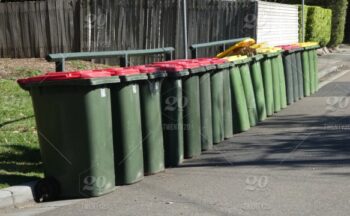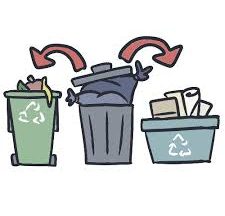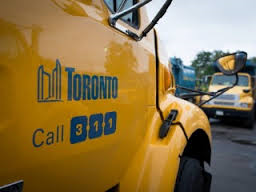 October 2022
October 2022
Recycling is popular, trendy and good for the environment. Two of three are true.
Every plastic bottle tossed into a recycling bin is creating a bigger mess than if tossed in trash. It has become clear to many that our recycling system isn’t working as it should.
Rising recycling costs and a smaller market for recyclables is part of the problem. China and Southeast Asian countries refusing foreign trash has left many cities with growing mountains of garbage. Our system of collecting and selling recycling has become a huge financial burden. To deal with overflowing trash heaps, Prince Edward Island has resorted to burning plastic bags. Across Alberta, cities and towns are refusing to accept certain plastics in their recycling systems. Toronto is equally vulnerable.
The current system of reduce, reuse, recycle has emphasised recycle. We focus on adding plastics and other items to recycling bins rather than reducing consumption. Locally, recycling has been encouraged in high-rise buildings and financially incentivized despite what is now overwhelming evidence of the system’s failure.
In Ontario, waste is a $300 million problem. More eco-friendly packaging would help. Plastic lining in a disposable coffee cup makes it difficult and expensive to recycle. Single use coffee pods, such as those used in Nespresso and Keurig machines, are unrecyclable.
A Forbes report estimates that a million recyclable plastic water bottles are purchased every minute. Only 91 percent are recycled. There are just too many single-use plastics for our recycling systems to handle. When it comes to other items destined for recycling, too much is contaminated and inappropriate for recycling.
In our current system all recyclable items are treated equal and deposited in a single bin. Unfortunately, not all recycling is equal. Many items flagged for recycling are unwanted at processing plants. While the cost of and demand for recycling newsprint, plastic bottles and plastic bags differ, all recycling costs are rising and have reached levels that discourage acceptance by recyclers. Many items are no longer economical to recycle.
Not everyone views garbage in similar terms. Cultural issues impact on how prepared Canadians are to recycle. Even if recycling systems were effective, studies show that most first-generation Canadians – more than 60 percent – don’t recognize the recycling symbol.
For decades we have ignored the realities of waste. Our mountains of garbage are invisible to most. Items intended for recycling have been shipped overseas for others to handle. Canada has admitted to violating international law by dumping garbage as recyclables shipped to Manilla for six years, then paid to have it returned for incineration.
Our single bin approach to recycling needs rethinking.






